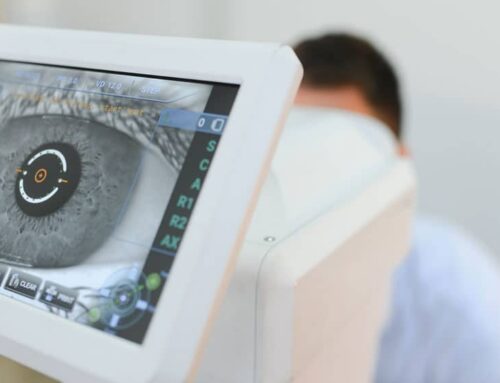Due to the fact that LASIK and other corrective eye surgeries are elective procedures, insurance companies typically do not pay the cost of these procedures. However, this does not mean you must pay the whole fee.
Your insurance provider can provide you with a policyholder incentive through a discount on LASIK surgery. Although this scenario occurs more frequently with vision insurance than it does with health insurance, each of these choices can help you save thousands of dollars. In addition, you may be eligible for further cost reductions by paying for your LASIK procedure with money from a flexible spending account (FSA) or health savings account (HSA).
When paying the total price, the cost of having LASIK eye surgery performed is, on average, $2,250 for each eye. The costs differ depending on the procedure’s location and whether it is a conventional or a custom treatment.
Does Health Insurance Cover LASIK Eye Surgery?
Most health insurance policies do not include coverage for elective procedures like LASIK, which is corrective eye surgery using lasers.
However, some insurance companies provide discounts on LASIK as a component of their member rewards or offer programs. These programs may be found in a select insurance organization. You may be able to reduce the amount of cash you need to bring to the clinic for surgery by doing so.
When it comes to LASIK surgery, health insurance companies that include the benefit can help you save an equivalent of $715 per eye on the procedure.
In addition, the reductions are typically applied when the bill is given, which helps you cut down on the amount of money you have to pay out of pocket without being concerned about getting reimbursed.
It is important to keep in mind that any costs associated with LASIK will not be covered by your medical insurance plan’s deductibles or copayments. LASIK perks are a discount scheme rather than typical health insurance coverage.
As an illustration, let’s imagine you spent a couple of thousand dollars for LASIK surgery using the savings that your health insurance provided. In the event that you require additional medical care during the same policy year, you will still be responsible for paying a portion of your health expenditures out of pocket until the amount you have spent reaches the deductible for your plan. Your expenditures on LASIK will not be deducted from your overall deductible amount.
Does Vision Insurance Cover LASIK Eye Surgery?
Vision insurance policies typically do not include coverage for LASIK surgery; however, most policies do include a discount program for corrective eye surgery.
These discounts are typically regarded as an additional benefit that comes on top of the plan’s standard coverage for eye tests, eyeglasses, and contact lenses. The cost of LASIK surgery can be reduced by an average of $948 for each eye if you have vision insurance.
The amount you save on LASIK surgery is typically more than the amount you will have to pay out of pocket for the vision insurance plan. This indicates that purchasing vision insurance is a wise investment if you intend to get LASIK surgery soon.
Remember that in most cases, the benefits provided by your LASIK insurance cannot be combined. For instance, if you are eligible for discounts on LASIK surgery across your vision insurance policy and your health care plan, you will need to coordinate your efforts with the surgery provider and insurance companies to determine how you can obtain the best possible price on the procedure.
Is LASIK covered by an FSA or HSA?
It is permissible, as stated by the Internal Revenue Service (IRS), to pay for LASIK eye surgery with money that is held in a health savings account (HSA) or a flexible spending account (FSA).
According to Publication 502 of the Internal Revenue Service, LASIK surgery is still considered a qualifying medical expense even when it is an elective procedure that is not required for medical reasons. That implies you can pay for your surgery with money from a health reimbursement plan or a flexible spending arrangement if you have one.
When it comes to paying for medical costs, tax-favored accounts such as a health savings account (HSA) or flexible spending account (FSA) are helpful tools that can make your money go further. These accounts will not result in a reduction of your actual medical expenses. Instead, they will absolve you of the obligation to pay taxes on the funds that you spend to pay for your surgical procedure.
Using an FSA can result in a 38% cost savings for the regular customer regarding the cost of LASIK. However, the amount of money you will save will differ depending on the tax rate you pay and the expenses associated with your treatment.
Additionally, savings from an FSA or HSA can be added to any reductions offered by an insurance company. You may be able to reduce the cost of your LASIK procedure by doing both of these things at the same time.







